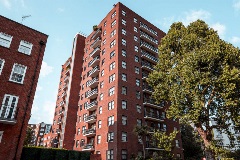
Impact of changes to Residential Tenancies Act, 2006 under Bill 184
On March 12, 2020, the Ontario Government introduced Bill 184 – Protecting Tenants and Strengthening Community Housing Act, 2020 (“Bill 184”). It may well have been the last Bill introduced in the legislature before the Corona Virus upended our everyday lives. As a result, many landlords will have missed changes that may be relevant to their businesses.
Among the most important changes, greater compensation is now required where tenancies are terminated to recover a unit for the landlord’s use and on demolition, as well as rules limiting surprise arguments at the Landlord and Tenant Board ("LTB"). Landlords operating buildings will need to be aware of all these changes. Developers acquiring smaller rental properties for redevelopment will have to factor in termination costs into their pro formas.
The Bill
The Bill has four continuant parts:
- Amendments to the Building Code Act, 1992
- Amendments to the Housing Services Act, 2011
- Ontario Mortgage and Housing Repeal Act, 2020
- Amendment to the Residential Tenancies Act, 2006
The impact to residential landlords is minimal with respect to the first three parts of Bill 184, but the proposed changes to Residential Tenancies Act, 2006[1] (the “RTA”) will have an impact. Below is an analysis of the proposed changes to the RTA and its impact on residential landlords.
- Exemption for land lease home in employment context
A new section 5.2 is proposed that would exempt a land lease home from the RTA if the unit is owned by an employer and provided to an employee in connection with their employment. This exemption applies even if the employee is terminated or is deceased.
Discussion: The main impact here would be that it would make it easier to end tenancies where the unit is provided as part of employment situation. This is important as the employer will likely want to have the unit available for a new employee.
- Compensation for tenant
There are three categories of changes proposed that would provide increased compensation for tenants upon termination of leases.
New Purchaser taking over Unit
A new section 49.1 is proposed, requiring a landlord that gives a notice of termination of a tenancy on behalf of a purchaser under section 49 to compensate the tenant via:
- One month’s rent; or
- Offer another rental unit acceptable to the tenant.
The change also specifies that this obligation is the obligation of the landlord and does not revert to the purchaser.
Discussion: Section 49 relates to sale of homes of three units or less, or sale of condominiums. Thus, the proposed change is likely to have the most impact on those individuals that have bought properties for investment purposes and are renting the unit. Upon sale of the unit, these landlords are unlikely to have other acceptable units to offer to their tenants, and therefore will need to pay the tenant one month’s rent as compensation for ending the lease. Providing one month’s rent will add a new cost to the landlord, but is unlikely to impact the landlord’s decision on whether or not to sell the unit. Conversely, the change offers some relief for tenants to help them find alternative residence and cover part of the moving costs.
Demolition of Unit
Currently, under sections 52 and subsections 54(1) and 54(2) of the RTA, for buildings with five or more units, a landlord is required to compensate a tenant if the landlord gives a notice of termination for demolition, conversion to non-residential use, or for the purpose of repairs or renovations.
New subsections 52(2), 54(3) and 54(4) are proposed to provide one month’s rent as compensation for a notice of termination for buildings of five or less units.
Discussion: Similar to the previous proposed change, this proposed change will have the most impact on smaller landlords and is unlikely to influence their decision making with respect to what they will do with their unit, though it does add a new cost to a small landlord contemplating demolition. From a tenant’s perspective, this proposed change will remove the distinction between getting compensation based on the size of the building that the tenant lives in.
Former Tenants
Currently, section 57 allows the LTB to make certain orders related to when a landlord provides a notice of termination in bad faith, causing the tenant to vacate the unit. Under existing subsection 57(3), the LTB may order that the landlord compensate the former tenant equivalent to the increased rent that the tenant has to pay over the next year and for all moving and storage expenses.
A new subsection 57(3) is proposed that would allow the LTB another option, on top of existing options, to compensate the former tenant – the LTB can now also award general compensation equivalent to twelve months of rent that the tenants was previously being charged by the landlord.
Discussion: The purpose of this change seems to give the LTB more tools to compensate tenants that are victims of landlords acting in bad faith. What the changes are trying to address is situations where a landlord sees an economic benefit to terminating an existing lease that is subject to LTB guidelines for rent increases, and then signing a new lease at a higher rent, without proper reasons. This proposed change will put tenants in a better situation than they would be under existing provisions, but the question is whether the one year compensation is enough. Tenant advocates may argue that, in situations where rent is significantly lower than market, one year’s rent may still be less the profits from the increased in rent. In that way the “price” of termination may still be worthwhile for a landlord.
- Affidavits with LTB Applications
A new subsection 71.1 is proposed requiring a landlord to provide an affidavit along with the application for termination where the landlord wishes to end a tenancy under sections 48 (landlord requiring unit personally), 49 (purchaser requires unit), or 50 (demolition, conversion, or repair of unit). If the affidavit is not provided, the LTB will refuse to accept the application.
The landlord, in the application, must also indicate whether the landlord, within the previous two years, had given any notices under sections 48, 49, or 50.
Furthermore, under new subsections 72(3) and 73(2), the LTB, in determining the good faith of the landlord or purchaser, may consider evidence regarding the landlord’s previous notices of termination.
Discussion: This proposed change is designed to discourage landlords from acting in bad faith as lying on an affidavit is perjury and has criminal law consequences. The proposed change of allowing consideration of prior notices should also give the LTB more tools to weigh the credibility of the witnesses.
- Raising issues at LTB hearings for evictions for arrears
Currently, under section 82, if a tenant is being evicted for arrears at the LTB, the tenant may raise any issues at the hearing that is pertinent to why the tenant did not pay the rent.
It is proposed that section 82 is repealed and replaced with provisions that still allow the tenant to raise issues, but the tenant has to: inform the landlord ahead of time that they are raising the issue; or provide the LTB with a satisfactory explanation on why the issue was not raised ahead of time.
Discussion: This proposed change should support landlords from being surprised at the hearing with issues that they were not aware of. Moreover, if the landlord is informed of issues ahead of the hearing, the landlord and tenant may be able to address the issues and avoid the hearing altogether. The effectiveness of this provision will be based on how adjudicators will interpret “satisfactory explanation,” where they will have to balance fairness to the landlord of not being surprised at the hearing with fairness to tenants to provide a full defence.
- Compensation from former tenants
Currently, a landlord can only go the LTB for an order to collect arrears, for occupation of a unit by an overholding tenant, or for compensation for damage to a unit if the tenant is still occupying the unit. If the tenant is not occupying the unit, the LTB has no jurisdiction. Thus, the landlord must go to other venues (usually small claims court) for recovery.
The proposed amendments to section 87 and 89 would allow the landlord to pursue the tenant at the LTB even after the tenant has moved out, as long as it is within one year after the tenant ceased to be in possession of the unit.[2]
Proposed new section 88.1 similarly allows a landlord to pursue a former tenant for reasonable out-of-pocket expenses that the landlord had incurred or will incur as a result of a former tenant’s substantial interference with the reasonable enjoyment of the residential complex by the landlord.
Proposed new section 88.2 allows a landlord to pursue a current or former tenant that has not paid utility costs that the tenant was required to pay.
Discussion: These proposed changes allow the LTB to address issues arising out of former tenancies. The proposed changes make sense as the LTB is the subject matter expert in all tenancy-related matters, thus would be better equipped to adjudicate such matters.
It is unclear how many more cases will be presented at the LTB as a result of this change, but consideration should be given to ensuring the LTB is adequately staffed to handle the increased workload.
- Rent increase deemed not void
Currently, a tenant or former tenant can pursue money collected illegally by the landlord, usually as a result of above-guideline rent increases.
The proposed new subsection 135(1) provides that the tenant or former tenant cannot pursue reimbursement of the money collected illegally if the tenant has paid the increased rent for a period of twelve (12) consecutive months and not filed an application with the LTB.
Discussion: The proposed change should provide cost certainty to landlords, where a landlord is not hit by an order requiring it to pay back for illegal rent over the limitation period for other offences within the RTA. At the same time, this proposed change does raise the question as to why landlords should be protected when they have charged illegal rent increases.
- Mobile home parks and lease communities
There are changes stipulated for mobile home parks and land lease communities to include certain prescribed services and facilities within the definition of “rent”. Furthermore, it is proposed that above-guideline rent increases can be applied for all types of capital expenditures. Currently, the above-guideline rent increases are only allowed for capital expenditures for infrastructure work that is required by a government.
Discussion: This proposed change could facilitate more investment by landlords into their communities as they would now be able to recover the cost through above-guideline rent increases.
- Mediation and ADR
Currently, the landlord and tenant can mediate disputes by mutual agreement. The mediated agreement is then endorsed by the LTB. Any subsequent breach can then be brought to the LTB without notification to the tenant (i.e. on an ex-parte basis) through a section 78 application – resulting in a more expedited eviction process.
The proposed changes to subsection 194(1) allow the parties to mediate or use other dispute resolution processes.
Discussion: Allowing more flexibility to resolve issues could result in better outcomes for both the landlord and tenant.
Furthermore, this new process should allow for some resolutions to occur more expeditiously. Currently, mediation often occurs on the day of the hearing and only those settlements involving mediators can be endorsed by the LTB – thus, being eligible for section 78 application. Under the new regime, there should be opportunity for the landlord and tenant to discuss the issues ahead of time, without the need for a mediator, and come up with an agreement that is enforceable through the LTB.
The challenge, as in all mediations, will be the power dynamic between the parties. The landlord is usually more sophisticated in these matters based on their experience, and thus will have more power to dictate the terms of a settlement. Having a mediator somewhat mitigated this power imbalance. If this change is implemented, the LTB will have to ensure it provides the appropriate level of scrutiny to non-mediated settlement agreements.
- Production Order
A new section 231 is added to allow a Provincial judge or justice of the peace to issue a production order compelling a person, other than the person under investigation, to produce documents or copies of documents where there is reasonable ground that an offence under the RTA has been committed.
Discussion: This proposed change gives the Ministry more powers to investigate those in breach of the RTA.
- Increased Penalties
- Affidavits with LTB Applications
Under proposed amendments to section 238, the maximum fines for breaches of the RTA has been increased from $25K to $50K for individuals, and from $100K TO $250K for corporations.
Discussion: The proposed increase in the fines could assist in deterring unscrupulous landlords from breaching the RTA.
[1] Residential Tenancies Act, 2006, S.O. 2006, c. 17
[2] One year time period is the general jurisdiction for matters at the LTB.
Print PDF
Bill 184 impact on residential landlords
At Robins Appleby, we have been providing legal advice for over 70 years to entrepreneurs, businesses, financial institutions, and foreign companies operating in Canada. Located in Toronto's financial district, our firm is trusted by clients to help solve critical, time-sensitive issues. We offer a wide range of legal services including business and transactions, affordable and social housing, litigation and dispute resolution, commercial real estate development, tax law, employment law, and estate planning.





.tmb-0.jpg?sfvrsn=7586236a_1)
